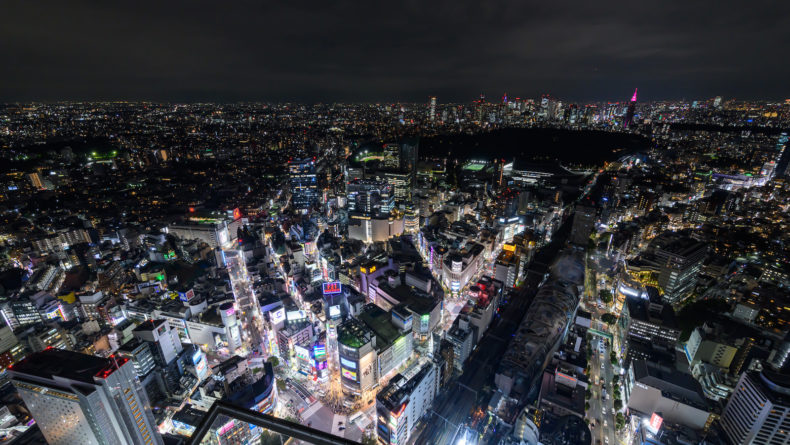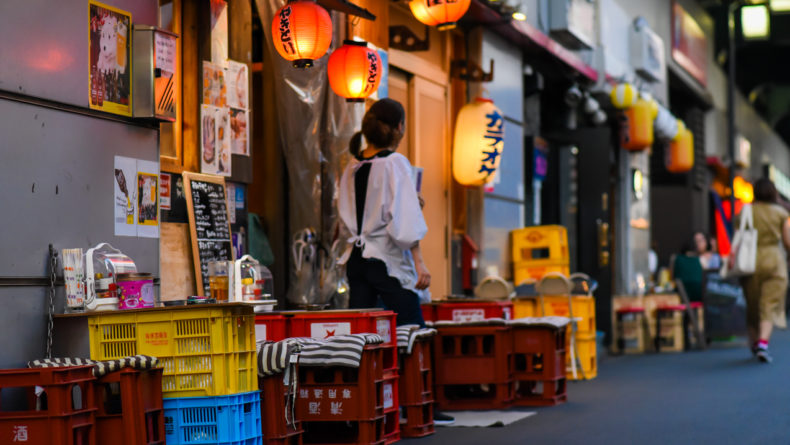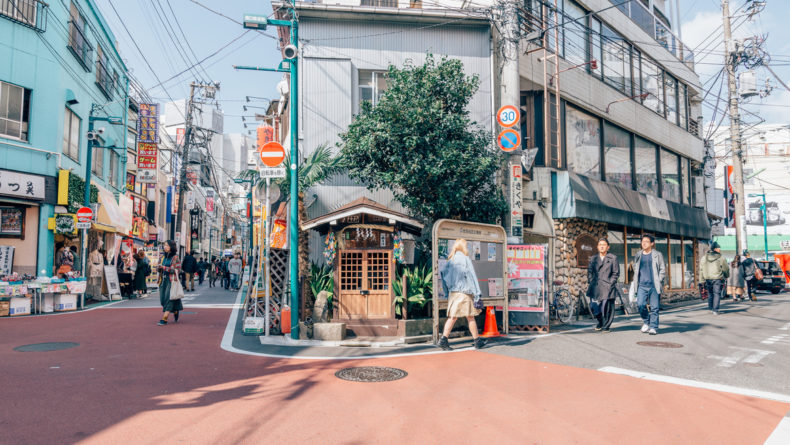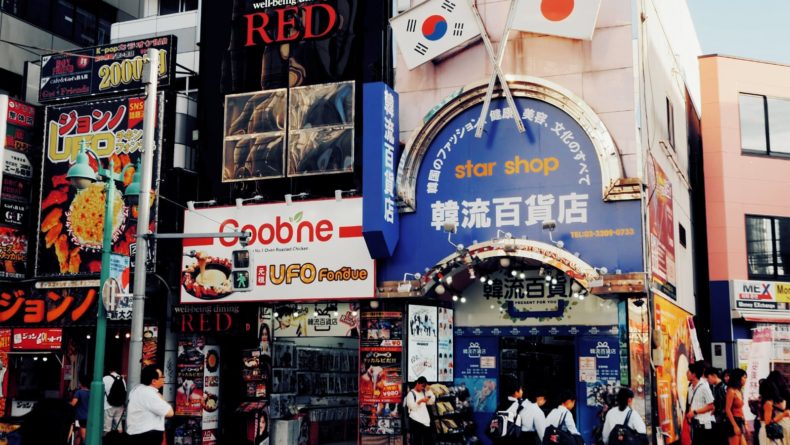Daikanyama: A Guide To Tokyo’s Little Brooklyn
Tokyo Neighborhood Strolls
Step into the capital’s coziest nook with classic style and high-end comfort.
You know that Tokyo is not all about shrines, neon-lit streets, and bustling crossroads. In fact, it’s exactly those places that don’t live up to stereotypes that have the greatest local discoveries. Daikanyama, often referred to as “the Brooklyn of the Japanese capital,” is one of those places; a hidden gem where modernity and comfort combine the perfect harmony. A popular weekend destination for locals, this area’s relaxed vibe, tree-lined pedestrian-only streets, and trendy eateries make it a suburban oasis located just a 15-minute walk from the world’s busiest intersection, Shibuya Crossing.
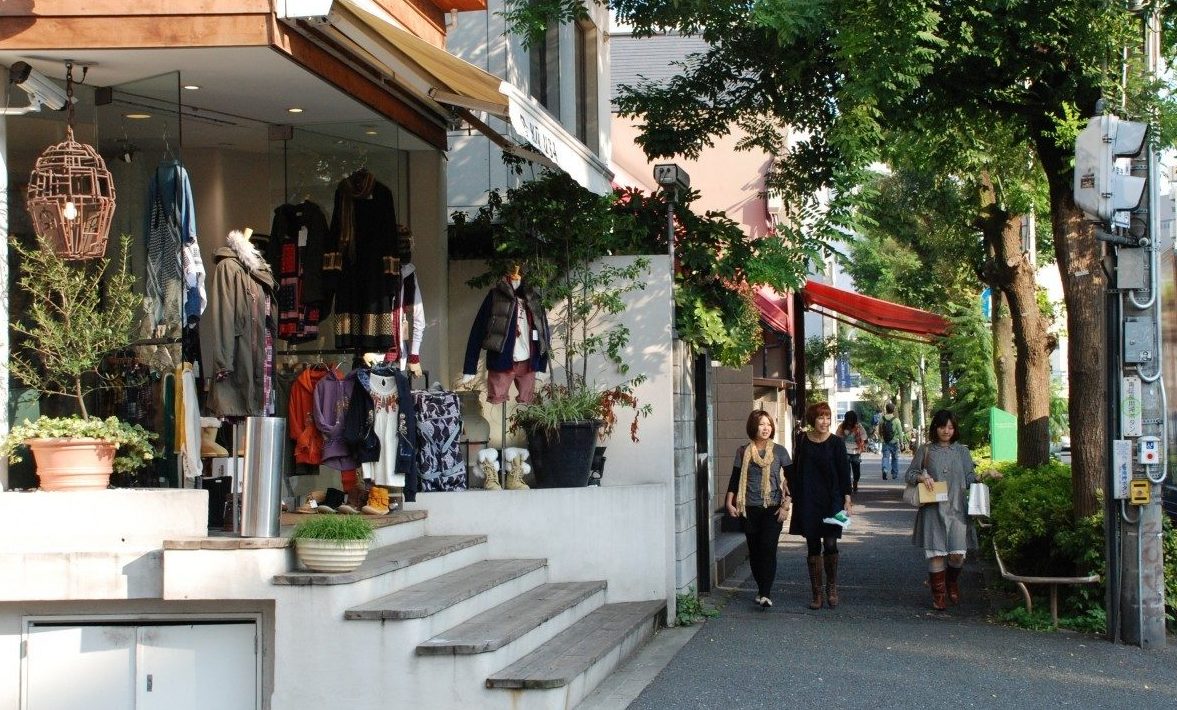
History & Background
One of the many public housing building projects undertaken by the Ministry of Home Affairs after the Great Kanto Earthquake of 1924, was a 232-apartment unit in Daikanyama. The building served as a focal point for all future architectural developments in the neighborhood, built with the use of earthquake-proof concrete designs. While this apartment complex was destroyed in 1996 during the restructuring of the neighborhood, Daikanyama still maintains the suburban feel with its low-rise concrete architecture.
Slightly removed from the hustle of Tokyo’s center but easily reached by train from Shibuya station on the Tokyu Toyoko Line, Daikanyama is equal parts stylish, sophisticated, and casual. Today, Daikanyama is dense with upscale low-rise architecture, small boutiques, open-air cafes, and an incredible literary complex lent it a laid-back vibe pleasantly wanderable feel. It also features a wide variety of art and culture that makes it the place to be for a slice of the artsy, modern life. Here’s how to enjoy Daikanyama to the fullest and navigate this little town like a local.
Things To Do
Covering all aspects of Japan — traditional culture to modern art to peaceful parks, Daikanyama is the perfect place to bring friends and the whole family for a relaxing Sunday afternoon.
Kyu Asakura House
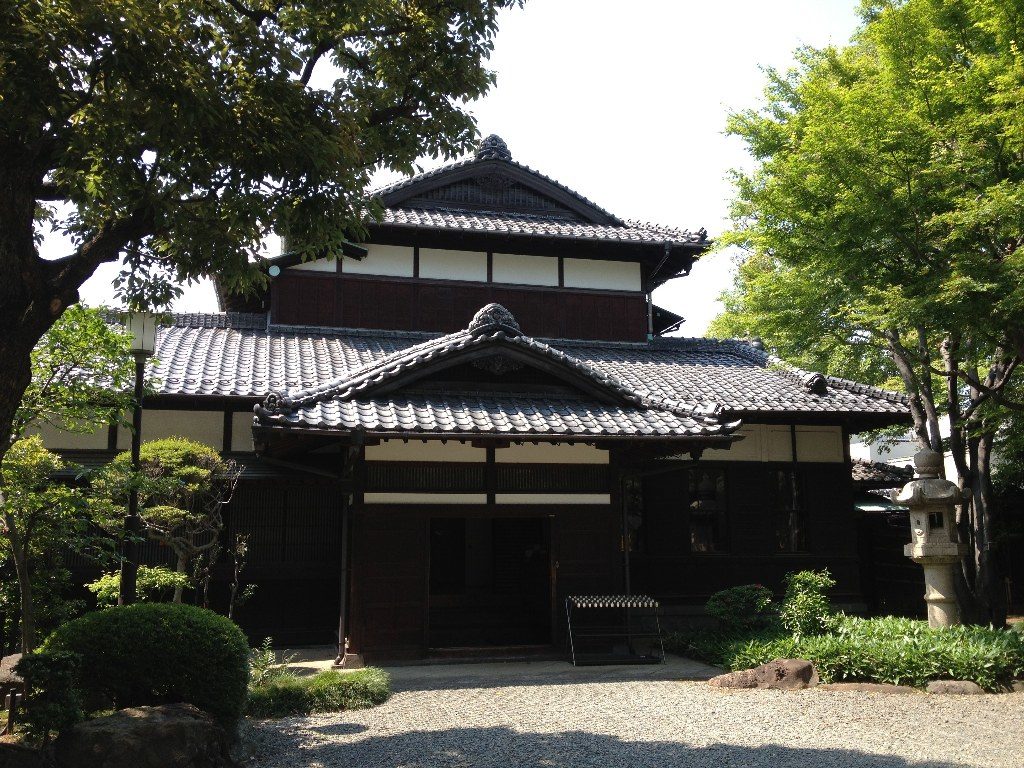
Start by a visit to the Kyu Asakura House. Located at just five minutes on foot from Daikanyama station, this beautifully preserved private residence that has been turned into a museum provides a peek into a traditional Japanese home, constructed in 1919. The former residence of the Asakura Family was built by its patriarch, Torajiro Asakura, and is a fantastic relic of Taisho era Japan that lasted from 1912 to 1926. Its wooden architecture and meticulously manicured Japanese gardens make it a true hidden gem and important cultural site.
Saigoyama Park
The Saigoyama Park nearby is a favorite relaxation spot for Daikanyama locals. Perched atop the hill it even boasts with the views of Mt. Fuji on clear days and is a seemingly untapped spot for sakura viewing in Spring.
Daikanayama T-Site
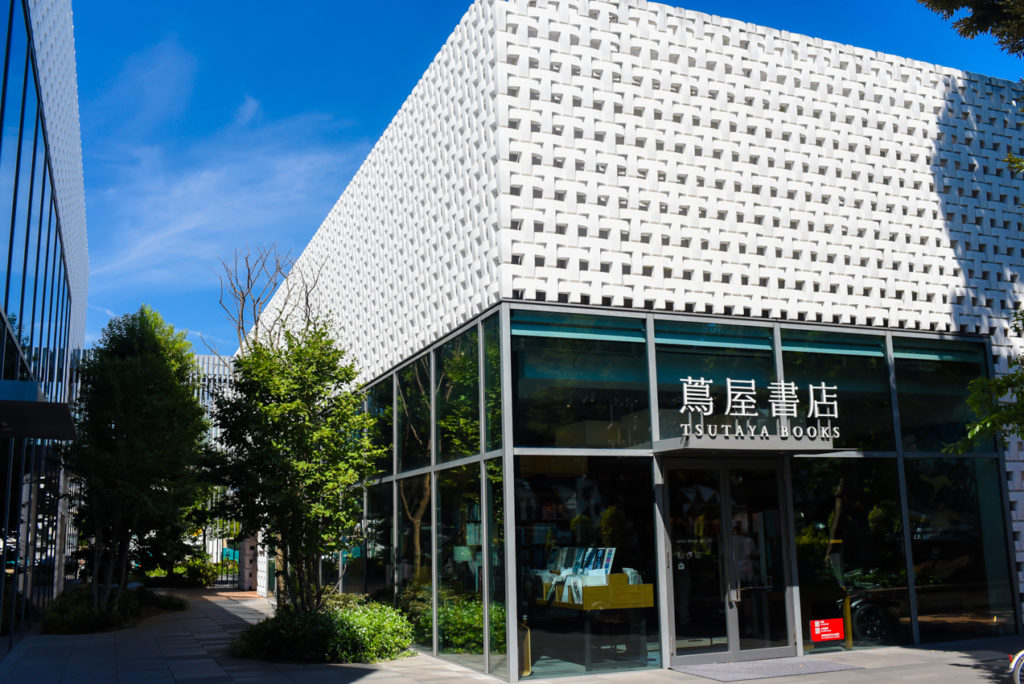
From there, head to the famous Daikanyama T-Site, known among locals as the “T-Site.” The jewel of the Daikanyama neighborhood, T-Site is a neo-modernist building complex that lends its name from Tsutaya (mind the interlocking T-shapes on the façade of the complex), a well-known CD/DVD rental shop, and hosts city’s most popular bookstore, cafés, upscale stores, an art gallery, and even a dog garden.
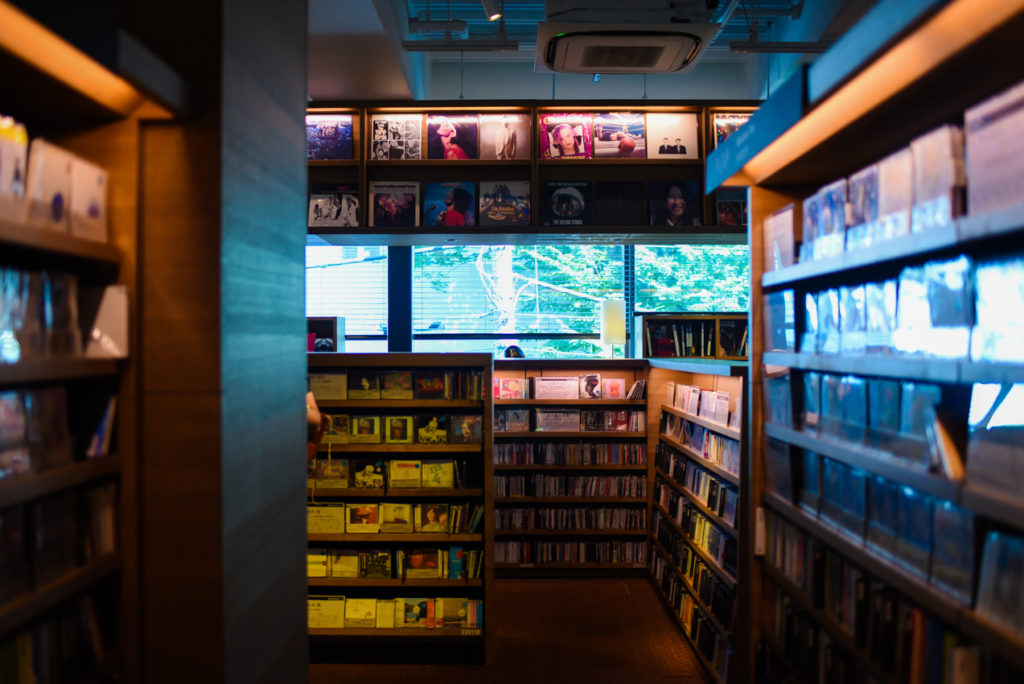
Not to be missed is the Tsutaya Books bookstore itself, a literary enclave that features elaborate interior design. The modern complex includes a lounge, café, upscale convenience store, and one of the busiest Starbucks joints. Comprised of three interconnected buildings, the bookstore has a seemingly endless offering of books, periodicals, English-language titles, DVDs, stationery, and movies. I can spend hours perusing their vintage magazines from the 60s and 70s on their 60-yard long “Magazine Street.”
Hillside Terrace
View this post on Instagram
The Hillside Terrace is a mixed-use development and a remarkable example of urban design created by the architect Fumihiko Maki in 1967. Lining both sides of Kyuyamate Dori, Hillside Terrace utilizes multiple sleek and variety laden forms of architecture. It is a laid-back complex that is home to museums, a design library, stores, restaurants, beauty salons, and even the Danish embassy.
Lift Etage
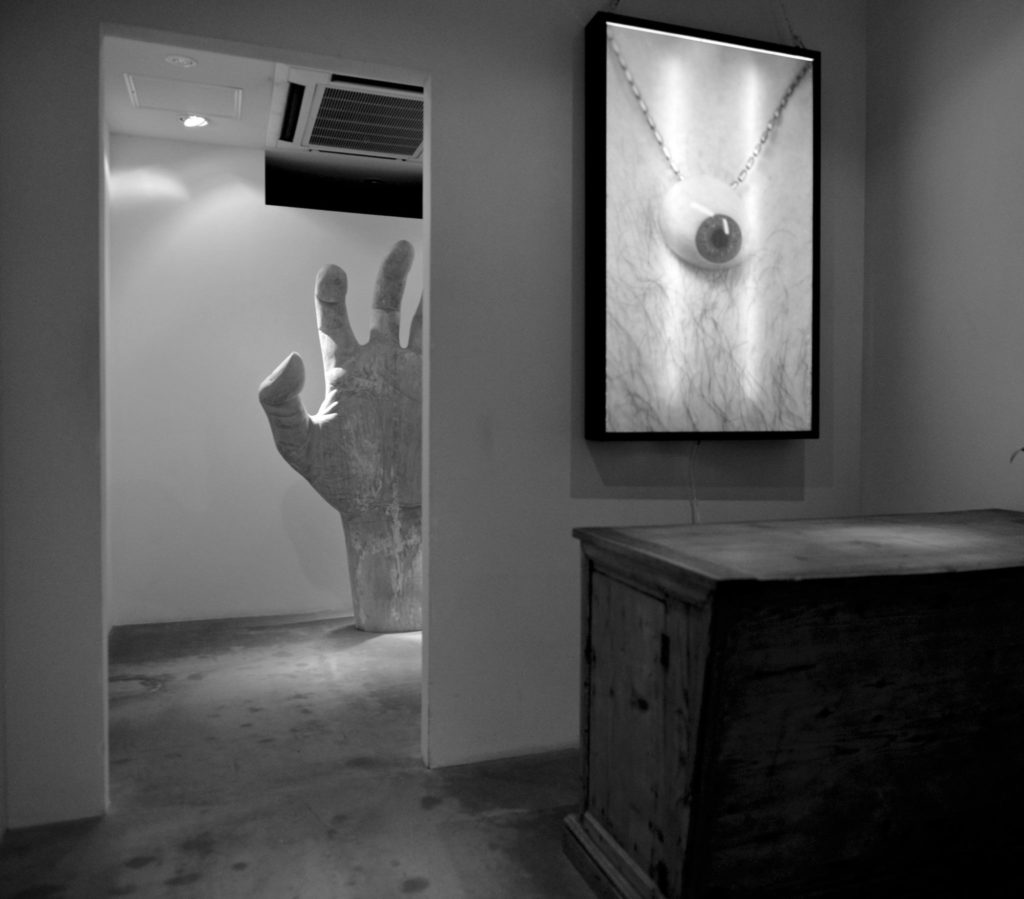
If you’re not tired yet, don’t miss stopping by at Lift Etage, a sartorial art gallery that collaborates mainly with fashion designers and mostly displays European haute couture fashion in a theatrically designed space. Lift Etage is part of a trio: Lift Ecru and a Showroom, which are all connected by ‘Lift’, the actual gallery name. You can easily spend half a day there and return home inspired as never before.
- Kyu Asakura House: 29-20 Sarugakucho, Shibuya-ku, Tokyo
- Saigoyama Park: 2-10-28 Aobadai, Meguro-ku, Tokyo
- Daikanyama T-Site: 16-15 Sarugakucho, Shibuya-ku, Tokyo
- Hillside Terrace: 18-8 Sarugakucho, Shibuya-ku, Tokyo
- Lift Etage: アドレス Garden Daikanyama, 16-5 Daikanyamacho, Shibuya-ku, Tokyo
Where To Shop
Daikanyama trades conventional department stores for exclusive boutiques and is a primary destination for the fashion-forward Tokyoites. Furniture stores, interior design studios, and boutiques favoring up-and-coming designers populate the area providing the perfect place to empty your wallet.
Journey
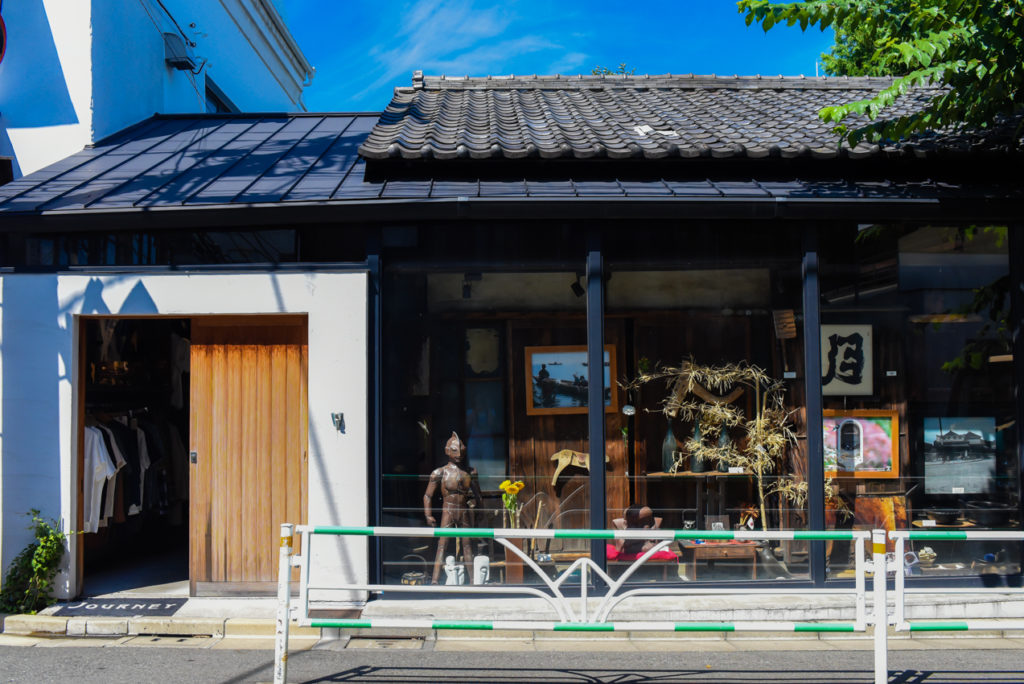
Journey is a quaint little piece of history originally built in the Taisho Period around 1917/18. Now it houses a shop that carries basics and accessories mainly imported from the U.S. The shop window acts as a little gallery space, displaying photos of Daikanyama from days past.
Okura
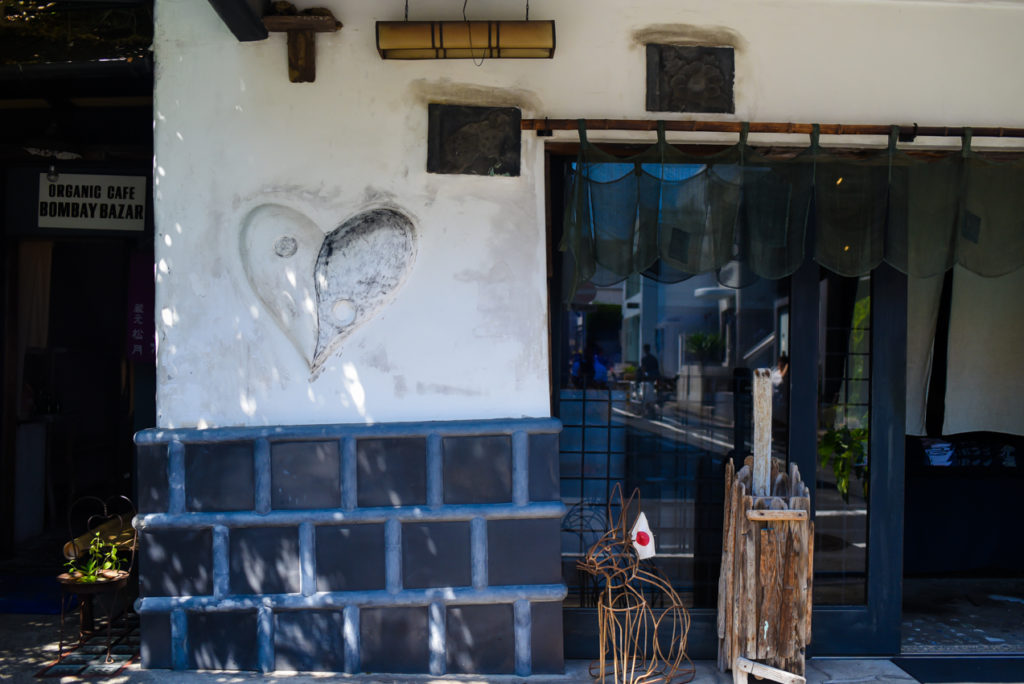
Okura, aptly housed in an old Japanese warehouse, features earthy, bohemian vibe and sells rich indigo-dyed Japanese clothes and accessories that feature Japanese tailoring techniques and designs. They use a traditional dyeing technique used in Japan for centuries (since the 10th century, in fact!) and create wonderfully deep blue fabric. While at it, check out Bombay Bazar in the basement of the same building for a flavorful bite to eat.
Where To Eat
Daikanyama boasts unique cafes serving piping hot coffees, adorable sweets, and good-for-you lunch and dinner menus so you won’t be feeling guilty when you’re back the very next day.
Ivy Place
Ivy Place, a sister location to T.Y. Harbor Brewery in Tennoz Isle and Cicada in Hiroo, has three distinct settings. The terrace café is a popular place for leisurely breakfast or lunch, an eclectic dining menu features quality food with a Mediterranean touch, while the bar is decidedly serene.
King George
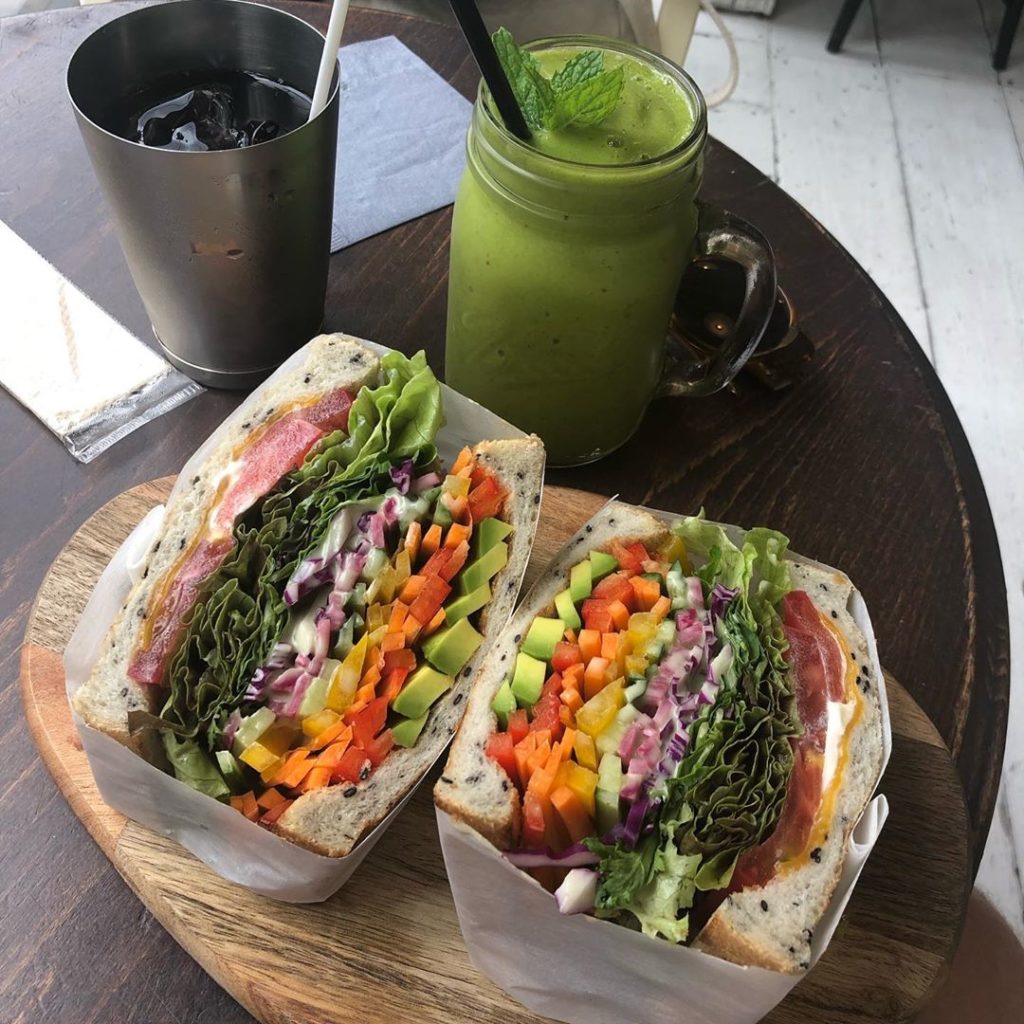 © Photo by fredfades
© Photo by fredfades
King George, opened by a husband-and-wife team in 2013, (and named after the couple’s beloved cat) serves one of the most beautiful and delicious made-to-order sandwiches using fresh local ingredients. You can wash it all down with smoothies, coffee, and cocktails. On sunny days, take your meal up to the ivy-covered outdoor terrace.
Anjin Library & Lounge
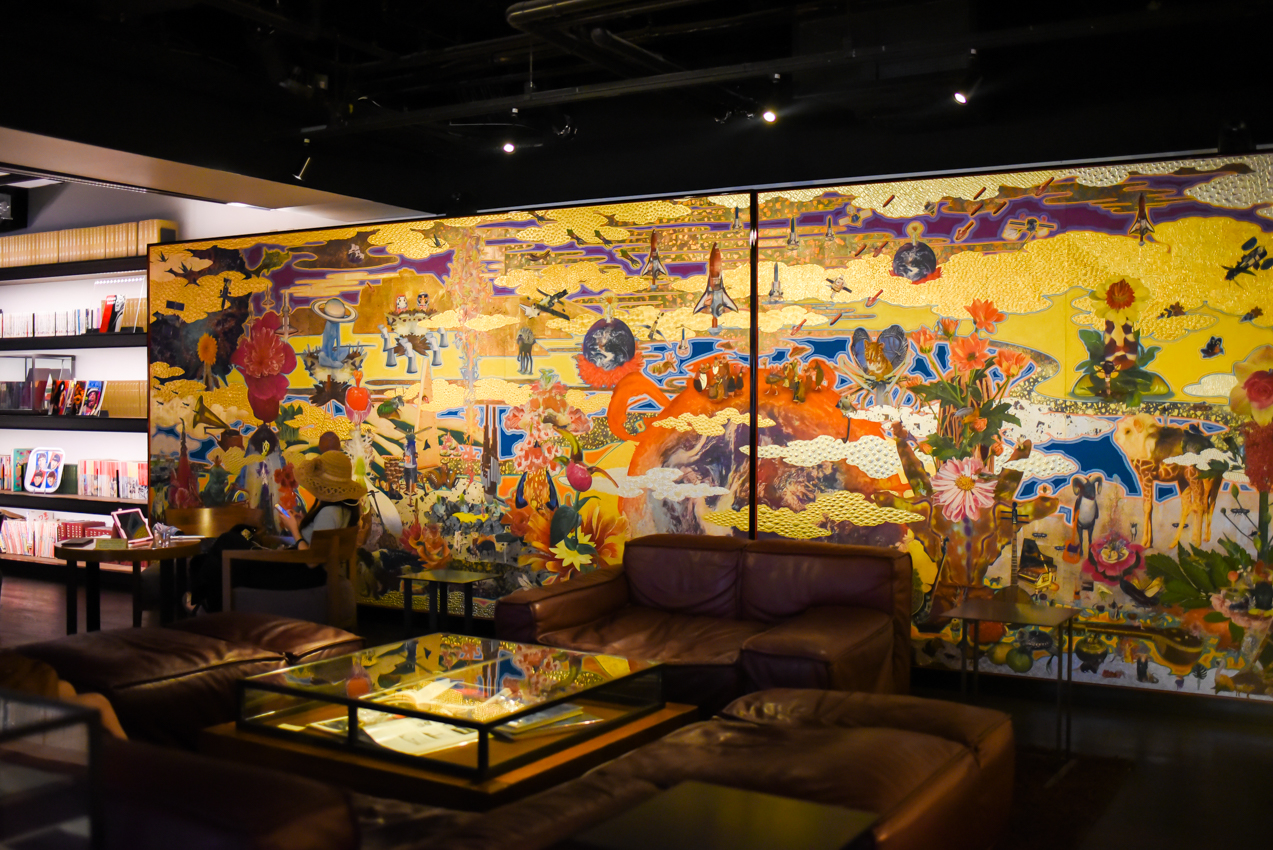
If you’re looking for a chic and relaxing ambiance, then you can’t beat the lounge on the second floor of the Tsutaya Bookstore in T-Site complex, the Anjin Library & Lounge. Blond leather couches, designer fixtures, rare collections of books from around the world that accent the shelves and enticing menu (oh, and free wifi!) make it for a perfect spot to linger with your favorite book or a vintage periodical that you borrowed from the magazine aisle downstairs.
Garden House Crafts
View this post on Instagram
Garden House Crafts, located at the end of the Log Road, Garden House Crafts — a Northern California-inspired café — serves plates such as organic house-made granola and avocado toast freshly made from locally sourced ingredients. The full bakery on premises churns out fresh loaves of bread, croissants, and seasonal and year-round pastries like the Nutella muffin. Ready-to-eat cookies and other treats are on hand to take away.
Mocha Coffee
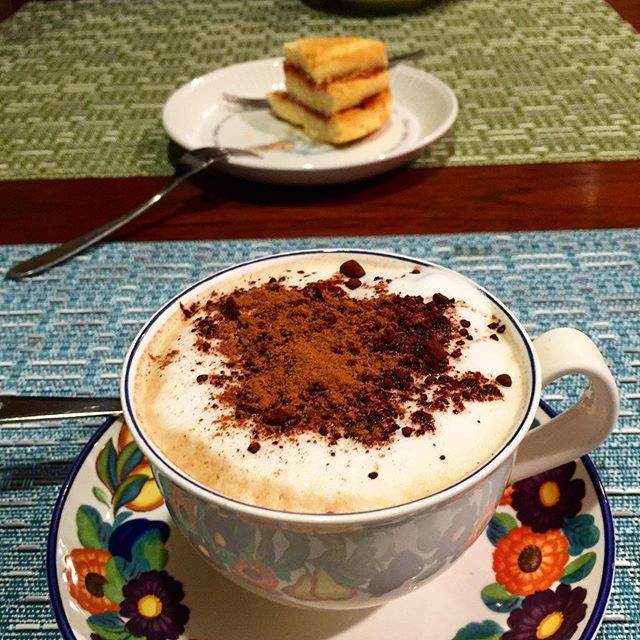 © Photo by mochacoffeetokyo
© Photo by mochacoffeetokyo
Mocha Coffee is the product of owner Hussein Ahmed and his Japanese wife. Here you’ll find beans from Yemen and coffee full of flavor. Using 100% hand-picked and sun-dried beans from Yemen, a country with particularly rich soil perfect for coffee plants, this little haven of Arab coffee will bring you a slice of far off lands.
Le Cordon Bleu
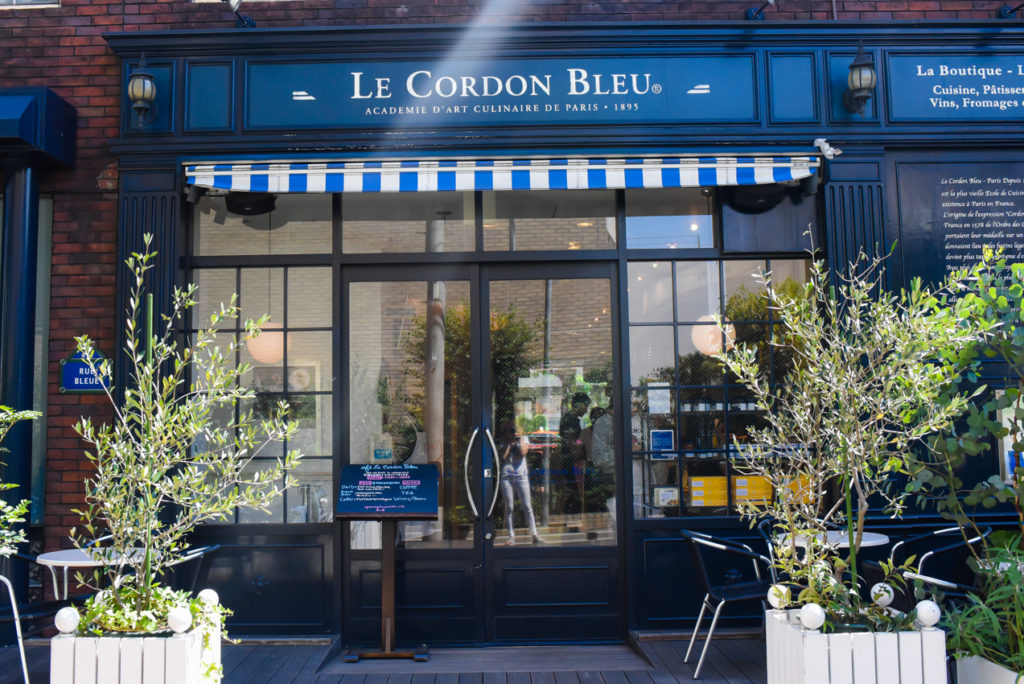
Le Cordon Blue is a French culinary academy, originally founded in Paris and now with branches across the world. This outpost in Daikanyama is called “La Boutique Cafe” and serves cakes, deli items, wine, beers, French bread and — of course — coffee. While students are busy learning the craft of cooking, the guests can enjoy some pastries on the little outside terrace.
Weekend Garage
View this post on Instagram
Last but not least, stop by at the Weekend Garage. Their motto says it all: every day is [the] weekend. It is such a great spot to park yourself in this stylishly designed yet casual restaurant for a few hours of rest and relaxation, complemented by great food and coffee.
- Ivy Place: 16-15 Sarugakucho, Shibuya-ku, Tokyo
- King George: 11-13 2F, Daikanyamacho, Shibuya-ku, Tokyo
- Garden House Crafts: 13-2 Log Road Daikanyama Tokyo bldg. 5, Daikanyamaccho, Shibuya-ku, Tokyo
- Anjin Library & Books: 17-5 Sarugakucho, Shibuya-ku, Tokyo
- Le Cordon Bleu: 28-13 Sarugakucho, Shibuya-ku, Tokyo
- Weekend Garage: 1-1 Grava Daikanyama, Daikanyamacho, Shibuya-ku, Tokyo
And then continue your walk down the narrow streets of Daikanyama, perhaps going back home relaxed, or once again plunging into the city chaos — yet slightly more inspired and uplifted.
Getting There
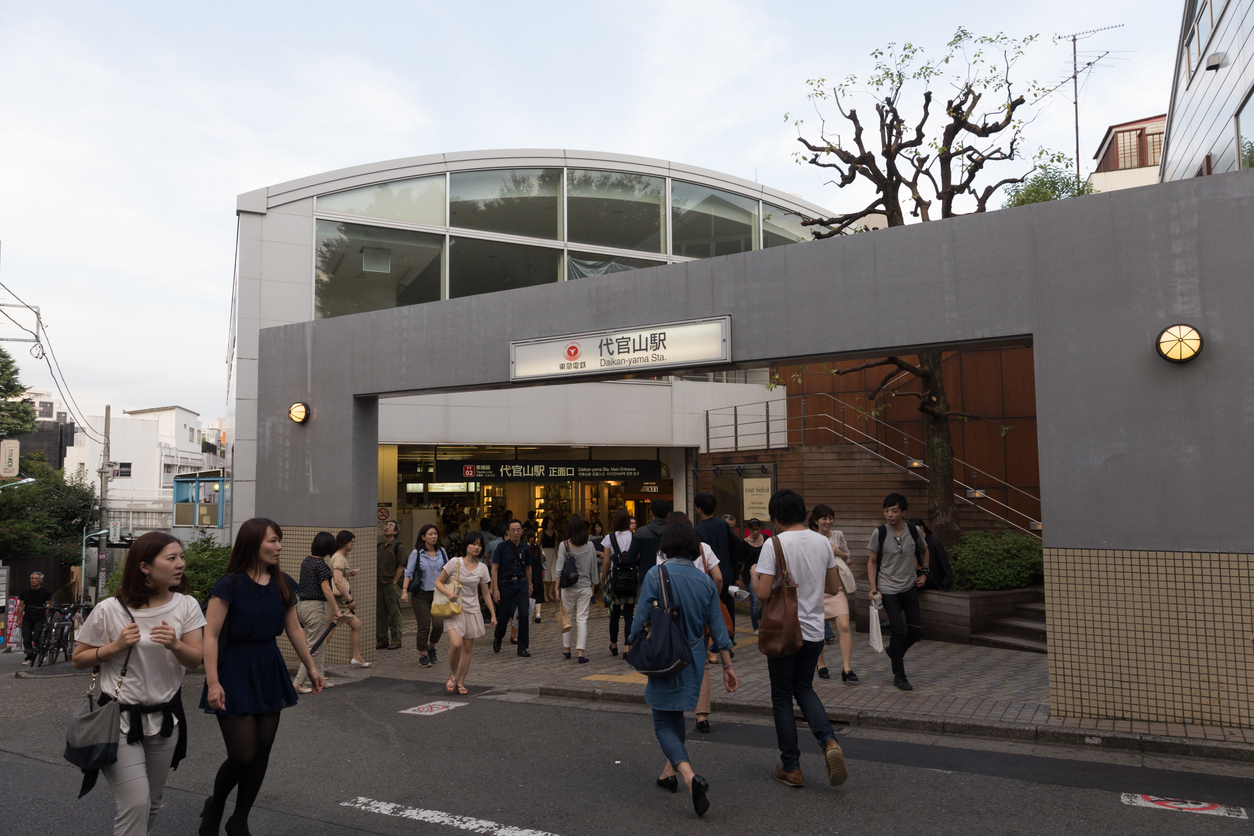
There is one line that runs directly to Daikanyama station, which is the Metro Toyoko Line. You can also take the JR Yamanote Line, Saikyo Line, Shonan-Shinjuku Line, or Metro Hibiya Line to get to Ebisu Station, which is about a 10-minute walk to the Daikanyama area.
“Tokyo Neighborhood Strolls” is Savvy Tokyo’s monthly guide to the capital’s best destinations for a day out. What neighborhood would you like to see next? Let us know in the comments!












